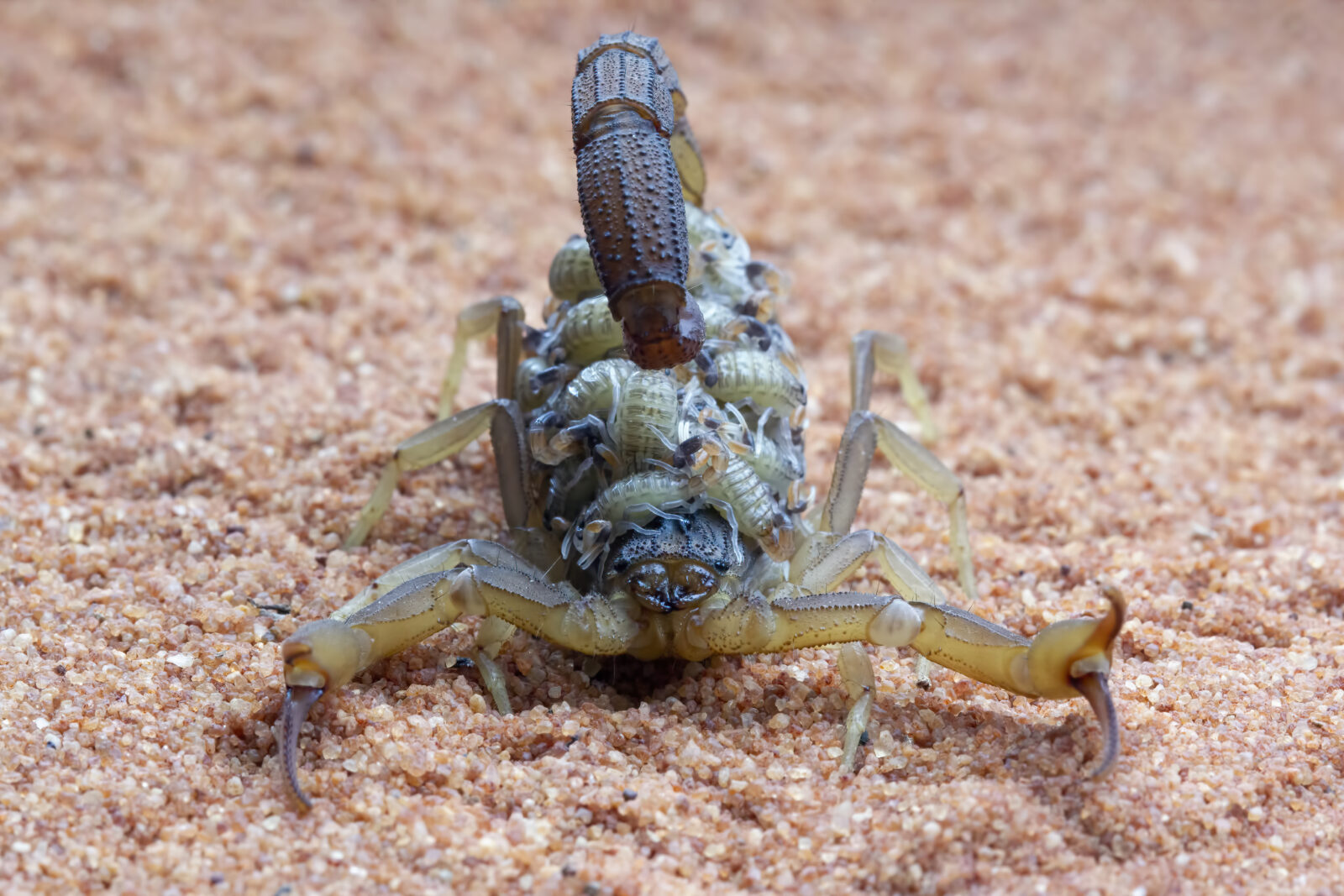When it comes to scorpions, most people instinctively react with fear. These small arachnids have a reputation for being dangerous, but what about their young?
Are baby scorpions as dangerous as their adult counterparts? Let’s explore this topic and uncover the truth about a baby scorpion and its venom.
What Are Baby Scorpions?
Baby scorpions, also known as scorplings, are born alive and ride on their mother’s back until they molt for the first time.
This initial period of their life is crucial for their development and survival. Scorplings look like miniature versions of adult scorpions but with softer exoskeletons.
Venom Potency in a Baby Scorpion
A prevalent misconception is that juvenile scorpions are more lethal than mature ones due to their inability to regulate their venom. Although, indeed, scorplings are not as adept at controlling their venom as adults, it would be inaccurate to categorize them as more hazardous.
This is the reason why:
Venom Composition
The venom composition of baby scorpions is similar to that of adults, but there are differences in potency depending on the species. Some species may have venom that is just as potent in their young, while others may have less toxic venom.
Inability to Control Venom
Baby scorpions might release all their venom in a single sting due to their lack of control. However, this does not necessarily mean their sting is more dangerous. The overall amount of venom they can produce is still limited by their small size.
Defense Mechanism
Scorplings rely more on their mothers for protection during their early stages of life. They are less likely to sting, as they are not fully developed and are more focused on survival and growth.
Risks of Baby Scorpion Stings
While a baby scorpion is generally less dangerous than adults, their stings can still pose risks, especially to those who are allergic to venom or have compromised immune systems. It’s essential to understand the potential risks and take appropriate precautions such as consulting pest control services.
Allergic Reactions
Just like with adult scorpions, some individuals may have allergic reactions to baby scorpion stings. Symptoms can range from mild to severe and may include swelling, redness, pain, and in rare cases, anaphylaxis.
Pain and Discomfort
A sting from a baby scorpion can still cause significant pain and discomfort. The severity of the pain depends on the scorpion species and the individual’s sensitivity to venom.
Infection
Any puncture wound, including a scorpion sting, can potentially lead to infection if not properly cleaned and treated. It’s crucial to monitor the sting site and seek medical attention if necessary.
Preventive Measures
To keep scorpions out of your home, try to clean and organize regularly. This helps remove places where they might hide. It’s also a good idea to seal your windows and doors to stop them from getting in.
Reducing the number of insects around your home can help too, as they attract scorpions. If you are working in areas where scorpions might be, remember to wear protective gear. Or better yet, reach out to experts like EnviroGuard Pest Control for help.
Ensure Safety by Understanding Baby Scorpions and Their Venom
In summary, a baby scorpion can be venomous but isn’t always more dangerous than adults. Their sting’s danger depends on the species and individual factors.
Understanding this and taking precautions can lower sting risks and keep you and your loved ones safe. If you’re worried about scorpions or get stung, see a doctor for advice and treatment.













